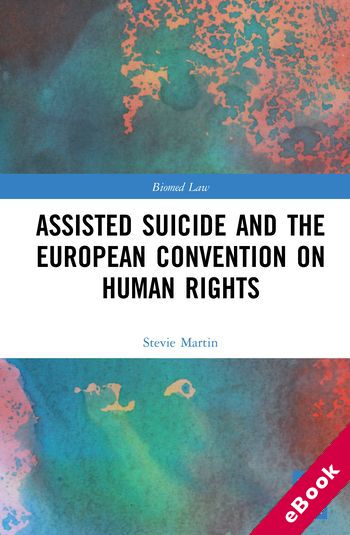
The device(s) you use to access the eBook content must be authorized with an Adobe ID before you download the product otherwise it will fail to register correctly.
For further information see https://www.wildy.com/ebook-formats
Once the order is confirmed an automated e-mail will be sent to you to allow you to download the eBook.
All eBooks are supplied firm sale and cannot be returned. If you believe there is a fault with your eBook then contact us on ebooks@wildy.com and we will help in resolving the issue. This does not affect your statutory rights.
Locating assisted suicide within the broader medical end-of-life context and drawing on the empirical data available from the increasing number of permissive jurisdictions, this book provides a novel examination of the human rights implications of the prohibition on assisted suicide in England and Wales and beyond. Assisted suicide is a contentious topic and one which has been the subject of judicial and academic debate internationally. The central objective of the book is to approach the question of the ban’s compatibility with the European Convention on Human Rights afresh; freed from the constraints of the existing case law and its erroneous approach to the legal issues and selective reliance on empirical data. The book also examines the compatibility of the ban on assisted suicide with rights which have either been erroneously disregarded or not considered by either the domestic courts or the European Court of Human Rights. Having regard to human rights jurisprudence more broadly, including in the context of abortion, the research and analysis undertaken here demonstrates that the ban on assisted suicide violates the rights of a significant number of individuals to life, to freedom from torture or inhuman or degrading treatment and to private life. Such analysis does not depend on a strained or contrived approach to the rights at issue. Rather, the conclusions flow naturally from a coherent, logical application of the established principles governing those rights.
While the focus of the book is the Suicide Act 1961, the conclusions reached have implications beyond England and Wales, including for the other devolved jurisdictions and international jurisdictions. Beyond courts and legislators, it will be a valuable resource for students of human rights and medical law, as well as medical and legal practitioners and academics working in human rights and end-of-life care.